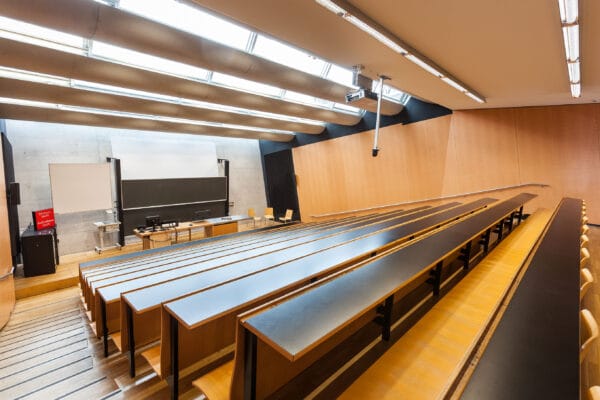
NAME:
SOWI - HS 3
BUILDING:
SOWI
FLOOR:
0
TYPE:
Lecture Hall
CAPACITY:
140
ACCESS:
Only Participants
EQUIPMENT:
Beamer, PC, WLAN (Eduroam), Overhead, Blackboard, Sound System, Microphones, Handicapped Accessible
Western science is foundational to the economic development that is driving the planetary crisis and many proclaimed solutions. The shortcomings of Western science-based solutions have engendered recent attempts to incorporate local knowledge into efforts to address global environmental change. In these efforts, local knowledge is often conceptualized as separate from Western scientific knowledge, a distinction that generates an inherent power imbalance between local and scientific knowledge. We use data from surveys and interviews with farmers from 46 Bolivian Aymara communities to analyze the yapuchiri process of knowledge production. This study blurs the distinction between local and scientific knowledge systems by unveiling shared characteristics by these systems. For instance, Aymara farmers developed their own rigorous institutionalized system for producing local knowledge through “expert farmers” or yapuchiri. Like Western science, this process privileges experimentation, rigor, replication, and dissemination. We also find that local knowledge is open, dynamic, and hybrid as it synthesizes Western science. This case also highlights how local knowledge is situated geographically, culturally, and socially, shaping the kind of knowledge produced and by whom. By examining how local knowledge is produced we can better understand the power relations and inequalities in knowledge production while also identifying commonalities, knowledge producers, and research priorities, which are fundamental to bridge knowledge systems for addressing global environmental change.

We and use cookies and other tracking technologies to improve your experience on our website. We may store and/or access information on a device and process personal data, such as your IP address and browsing data, for personalised advertising and content, advertising and content measurement, audience research and services development. Additionally, we may utilize precise geolocation data and identification through device scanning.
Please note that your consent will be valid across all our subdomains. You can change or withdraw your consent at any time by clicking the “Consent Preferences” button at the bottom of your screen. We respect your choices and are committed to providing you with a transparent and secure browsing experience.